IPDET
Turning Interest into Passion: How GEI and IPDET Build Individual M&E Capacities

Kenneth Otikal
Head of Planning, Monitoring and Evaluation (M&E) at the Dairy Development Authority (DDA) in the Ministry of Agriculture, Animal Industry and Fisheries (MAAIF) in Uganda is in a team meeting with colleagues. “You cannot have an M&E system without these elements and indicators,” he emphasizes to his team. Kenneth is proud to share his M&E knowledge with co-workers and others. “I wish my colleagues in my unit could have a similar experience [like the IPDET Training] and cement this passion for M&E forever,” he says.
Olga Morozan
Educational Officer at the Pestalozzi Children’s Foundation (PCF) in Moldova, is speaking to a room of NGO representatives, civil society, and public authorities. She was invited by a local educational center to deliver a project management workshop, with specific focus on M&E. Using her knowledge on M&E has been helping her bring attention to issues that she cares about deeply, like gender equality. Olga also successfully advocated for each project at PCF to have a M&E component. She has helped to lead other trainings around M&E and gender. “It is the beginning,” she says, “where I disseminated the information and shared how it . . . could change the mindset of people; not at the problematic level, but at organizational level in order to have a . . . quality-based organization.”
As Olga notes, institutional change must often start with the individual. Since institutions are built by people, for real long-term organizational change to occur, the perceptions in the minds of individuals must also change. Consequently, one of the primary goals of the Global Evaluation Initiative (GEI) is strengthening the capacities of evaluators, policymakers, and other M&E professionals to understand the role of M&E and evidence in decision-making; to gather, analyze, and use evaluative knowledge; to conduct evaluations; and to better manage and use M&E systems. One of the ways that GEI accomplishes this is through supporting GEI Implementing Partner, the International Program for Development Evaluation Training (IPDET). IPDET is a globally recognized and highly respected program for advanced training in the field of evaluation. Their courses and workshops pair professionals who commission, manage, practice or use evaluations with a distinguished international faculty in order to build foundational and advanced knowledge in evaluation. More than 4000 M&E professionals have received training through IPDET.
Both Olga and Kenneth have come a long way in their knowledge journey on M&E and are now sharing their knowledge with their teams and other organizations, influencing progress and inspiring transformation.
It all started with the IPDET Hackathon.
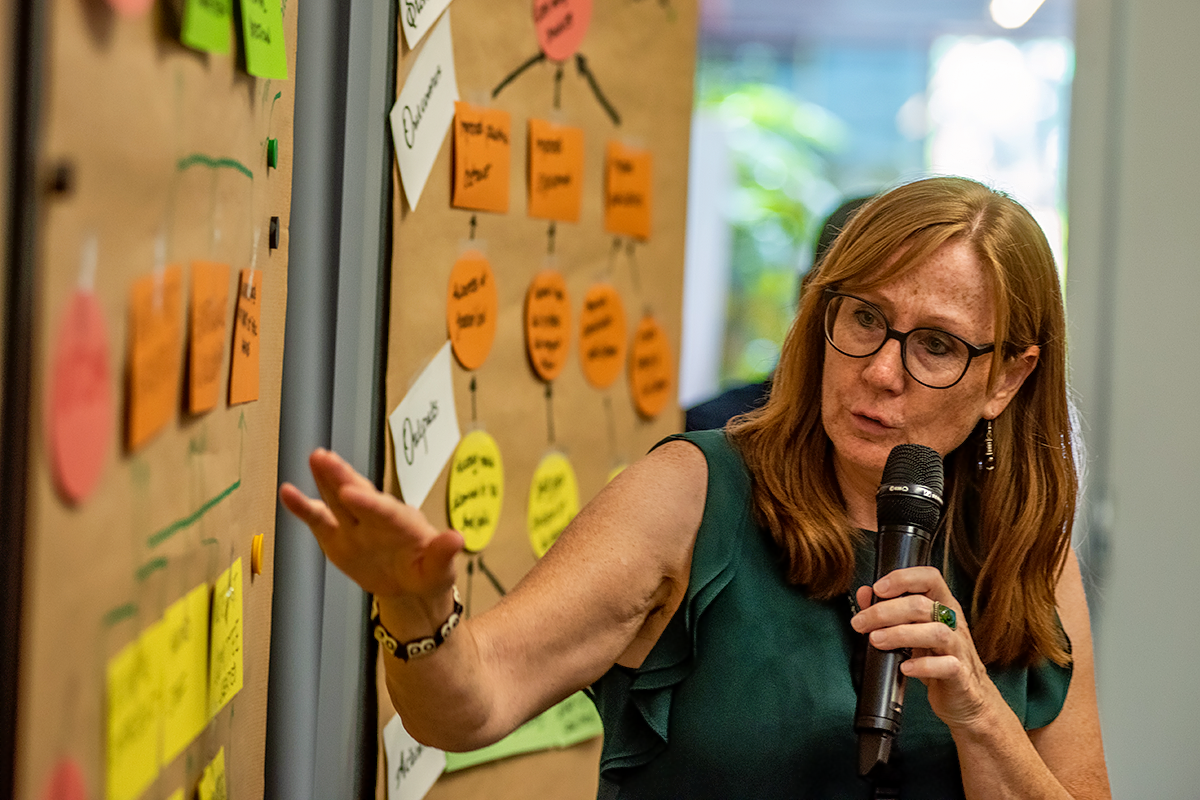
First Stop on the Journey:
IPDET Hackathon
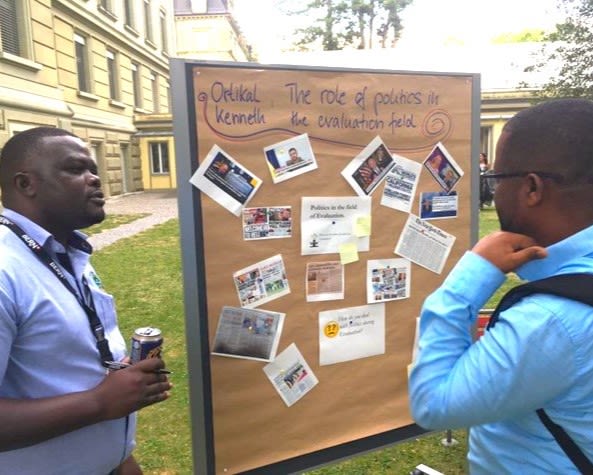
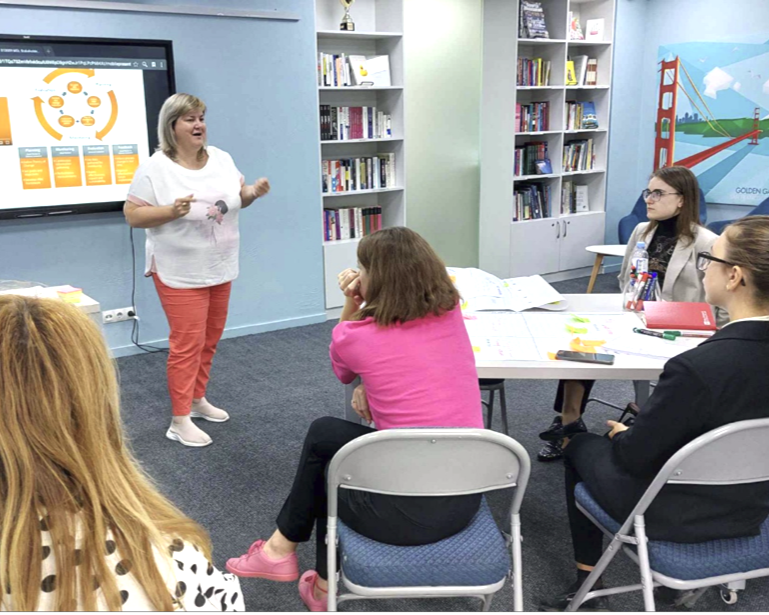
In 2020, the COVID-19 pandemic was sweeping across the globe, limiting programs and travel. Even though both Olga and Kenneth had some experience with M&E and were familiar with the IPDET training, they hadn’t been able to attend the in-person training before due to a lack of organizational resources and the global pandemic which made in-person training impossible, anyway.
They were both excited to hear that IPDET would organize the world’s first online “Evaluation Hackathon.” Participants could choose to work on one of ten topics. Kenneth and Olga both chose the challenge “Alternative Data Collection if Field Visits are Not Possible in Times of COVID-19 and Developing Innovative Solutions” and ended up being placed on the same team, with other M&E professionals from all over the world.
“The blend of participants in our team that we had for the Hackathon was multidisciplinary and provided much for the content areas that we needed to succeed. I believe the judges were impressed with our work and solutions presented at the Hackathon.”
The idea of their team’s project, “EvalHub” aimed to solve data collection challenges under the COVID-19 pandemic. It would enable evaluators to collect information remotely where there are methodological constraints due to social distancing and travel restrictions. It ended up being one of two first place winners of the Hackathon. By winning first place at the IPDET Hackathon, Olga and Kenneth’s team received a scholarship to participate in the IPDET program and they decided to use their scholarship once travel restrictions were lifted. “We want to see each other’s faces in real life, to meet and hug, and to network with real people,” they agreed.
“I remember the moment when it was the graduation and the final selection. I didn’t think that we were going to win and one of the teammates informed us: ‘Guys, we won.’”
Learning with an International Cohort Deepens Knowledge and Builds Connections
“We have the winners of Hackathon 2020 with us!” announced Head of IPDET, Dr. Stefanie Krapp, in the opening session of the 2022 IPDET Training Program in Bern, Switzerland. Olga and Kenneth, together with their teammates, and over 100 other participants from all over the world cheered.
In addition to the IPDET Core Course, participants can select additional workshops to tailor their learning to personal needs and interests. Olga and Kenneth both participated in the workshop “Developing M&E Systems in Organizations” led by Prof. Dr. Reinhard Stockmann and Dr. Wolfgang Meyer from the Center for Evaluation, Saarbrücken, Germany. Olga also chose “Gender-Responsive Evaluation: Enhancing Empowerment and Sustainable Development” with Dr. Marianne Meier from the University of Bern. Kenneth joined the “Communication and Reporting – How to Increase the Impact and Utility of Your Evaluation” workshop with Allison Malkin, mediator, trainer and coach in numerous countries.
During the training program, IPDET facilitates network building activities to help participants bond and build connections that last beyond the training in Bern. IPDET creates interactive spaces that foster a sense of belonging where people can meet and exchange knowledge.
Olga and Kenneth both highly valued the open atmosphere during the Bern program, which enabled connections that have lasted beyond the training. To maintain these connections, IPDET supports program alumni through monthly virtual meet-ups and through the IPDET CoSMOS, a community platform hosted on Discord.
Olga became very close with some of the other Bern program and Hackathon participants. They even met in Moldova to work on some evaluation projects. Kenneth made also important contacts at the IPDET training. He and several other participants have worked closely to submit joint proposals and are contemplating building a consortium of consultants.
“My memorable moment was meeting Dr. Wolfgang Meyer and Dr. Reinhard Stockmann, because one reads at school the books and literature from these authors who are experts in M&E and then you get to meet them face to face. That was a plus…”
How IPDET Deepens Connections Between Participants
During the training program, IPDET facilitates network-building activities to help participants bond and build connections that last beyond their time in Bern. IPDET creates opportunities that foster a sense of belonging where people can meet and exchange knowledge. One of those opportunities is the “World Exhibition.” Dozens of countries are usually represented at the IPDET Program, bringing together a rich diversity of cultures, customs, and languages. To help build connection and a sense of belonging for participants, IPDET encourages participants to bring cultural and country-related items from home to display, discuss (and even exchange) during the World Exhibition. Learning about others’ country, culture and language lets participants have more meaningful interactions, celebrating differences as well as similarities. A sense of belonging – an important part of community building – comes from an individual’s feeling of acceptance and inclusion in a group despite differences.
Another opportunity is the “Participant’s Forum” where participants are encouraged to create poster presentations or “market stands” around one particular question. Students are encouraged to walk around and discuss the ideas presented on the posters/stands. This creates an opportunity for a more informal exchange of information and helps participants get to know each other, find common ground, explore new ideas, and seek advice.
Another opportunity is the “Participant’s Forum” where participants are encouraged to create poster presentations or “market stands” around one particular question. Students are encouraged to walk around and discuss the ideas presented on the posters/stands. This creates an opportunity for a more informal exchange of information and helps participants get to know each other, find common ground, explore new ideas, and seek advice
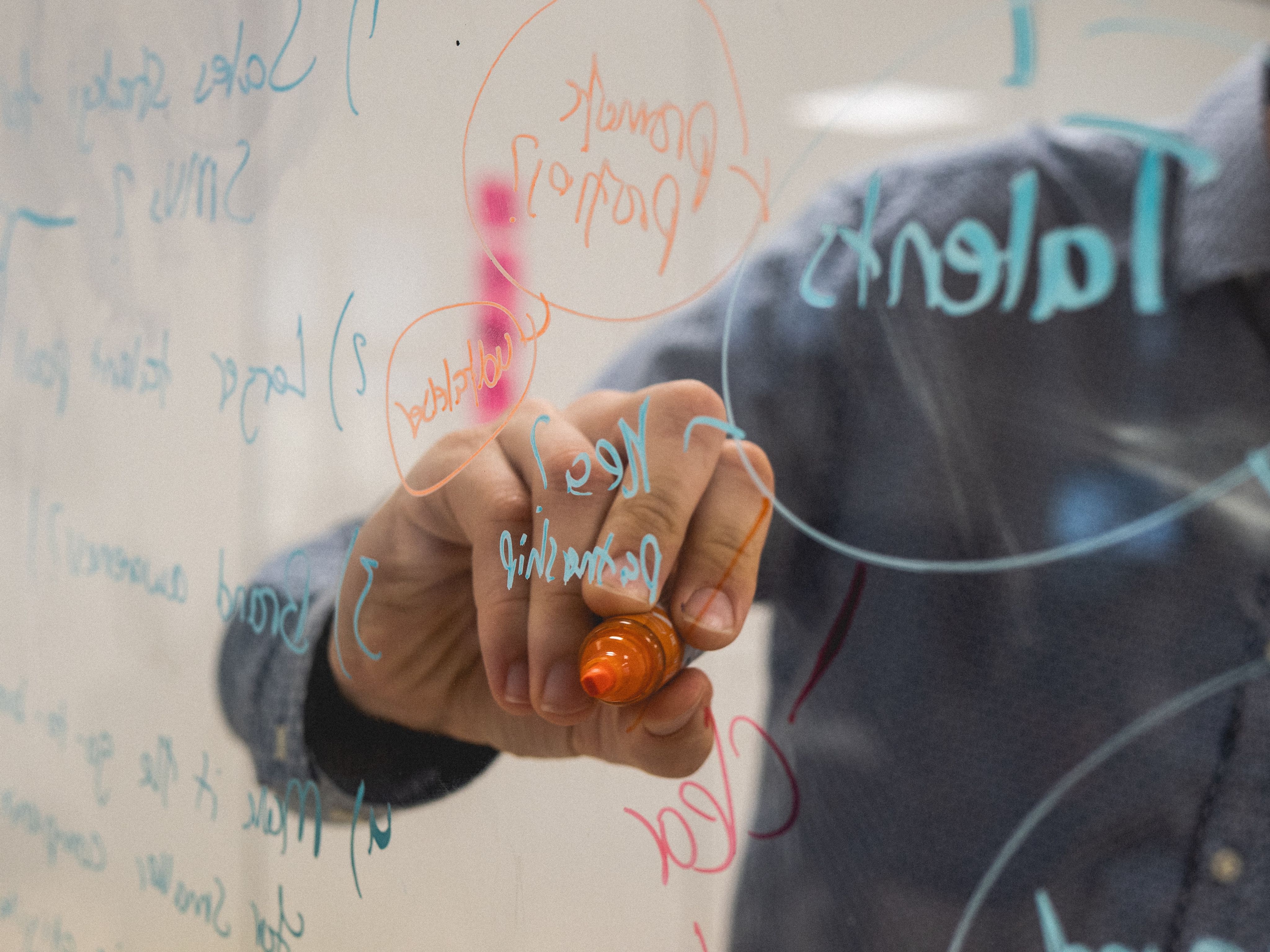
Bringing Knowledge Back Home
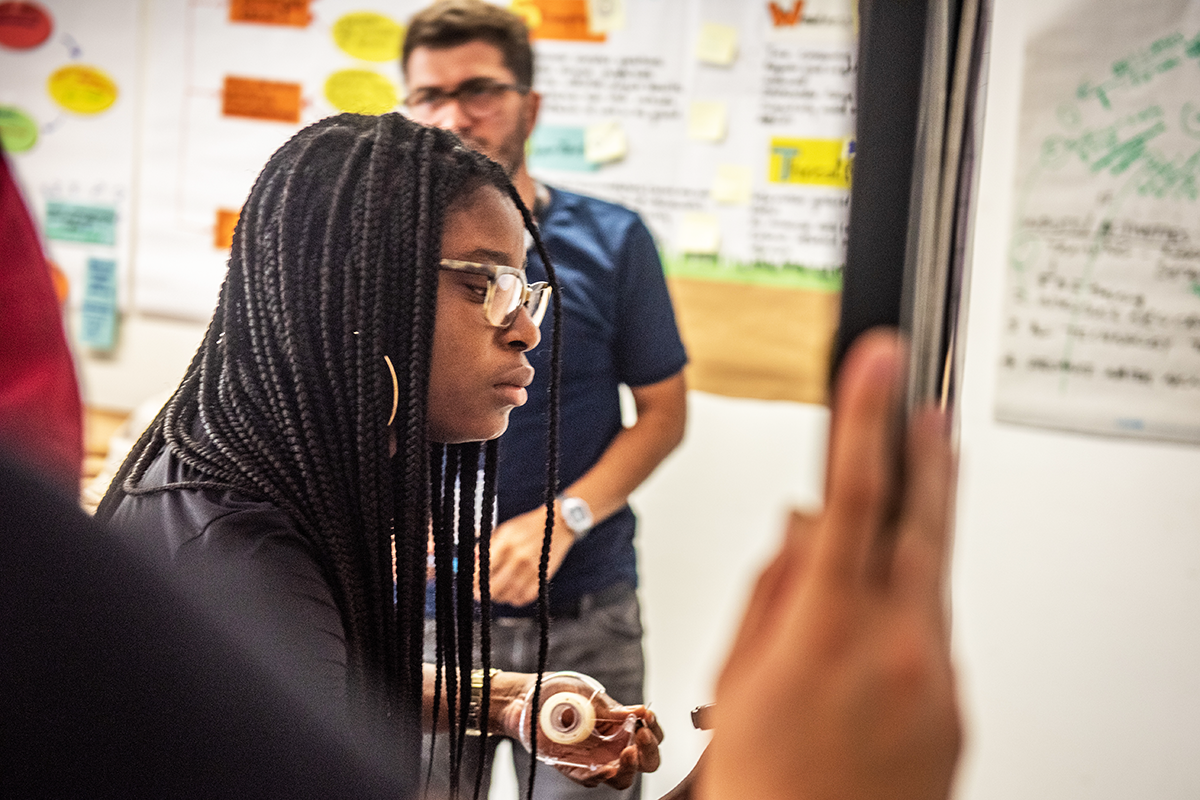
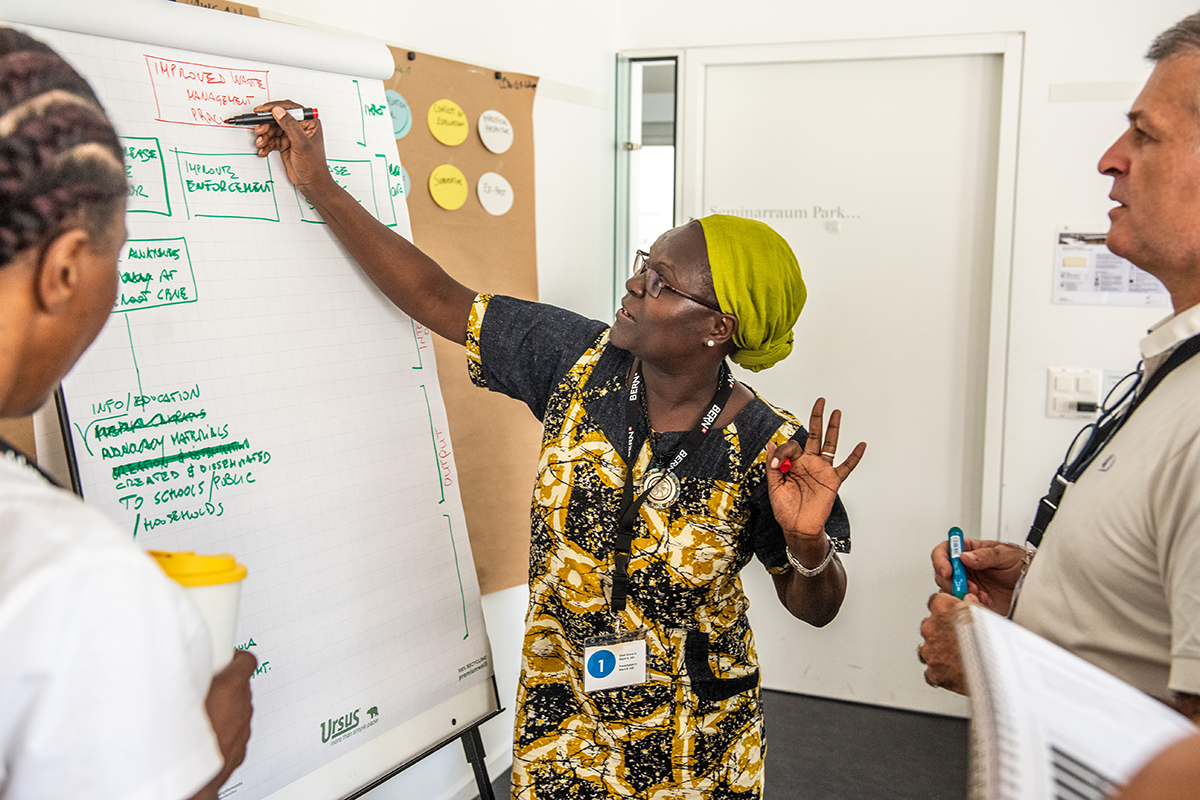
At his office in Uganda, Kenneth shared what he learned at IPDET in team meetings, especially focusing on the importance of improving their databases. Now his team is in the process of designing a web-based information system for his organization. Furthermore, he is advocating for the implementation of an M&E plan, anchored on their existing M&E policy.
The Ugandan Evaluation Association (UEA), which Kenneth is a member of, invited him to talk about how his IPDET experience and the knowledge he gained at the training could help advance the association.
Recently, an invitation letter arrived from the Office of the Prime Minister, which is the office that leads the M&E activities in Uganda. Kenneth was invited to join the national M&E technical group – he, of course, accepted.
An idea that Olga brought from IPDET is to build a community of evaluators in Moldova like UEA in Uganda. She is working with others on trying to connect individual experts, as well as their organizations and associations. PCF Moldova’s CEO visited Olga’s team and she had the chance to share insights with them from the IPDET training. This was a valuable opportunity to influence how her organization viewed M&E and explain how a gender lens can be incorporated into PCF projects through M&E.
Olga has shared her IPDET knowledge with other organizations in Moldova, too. She has held workshops focused on topics such as how to create a baseline, how to choose the right indicators and how to integrate them.
Building a Global Movement, Powered by Evidence
Building national M&E capacities is a fundamental part of GEI’s strategy. For M&E systems in developing countries to work effectively, trained policymakers, evaluation professionals and other specialists are needed to support the development and use of these systems. The demand for M&E practitioners with up-to-date skills and knowledge continues to grow.
In addition, individuals have the power to make a difference and create change within their organizations and communities. By giving evaluators, policymakers, and other M&E professionals the knowledge and skills to deepen their practice, GEI and IPDET build a global movement of individuals and organizations who value the power of evidence to improve people’s lives.
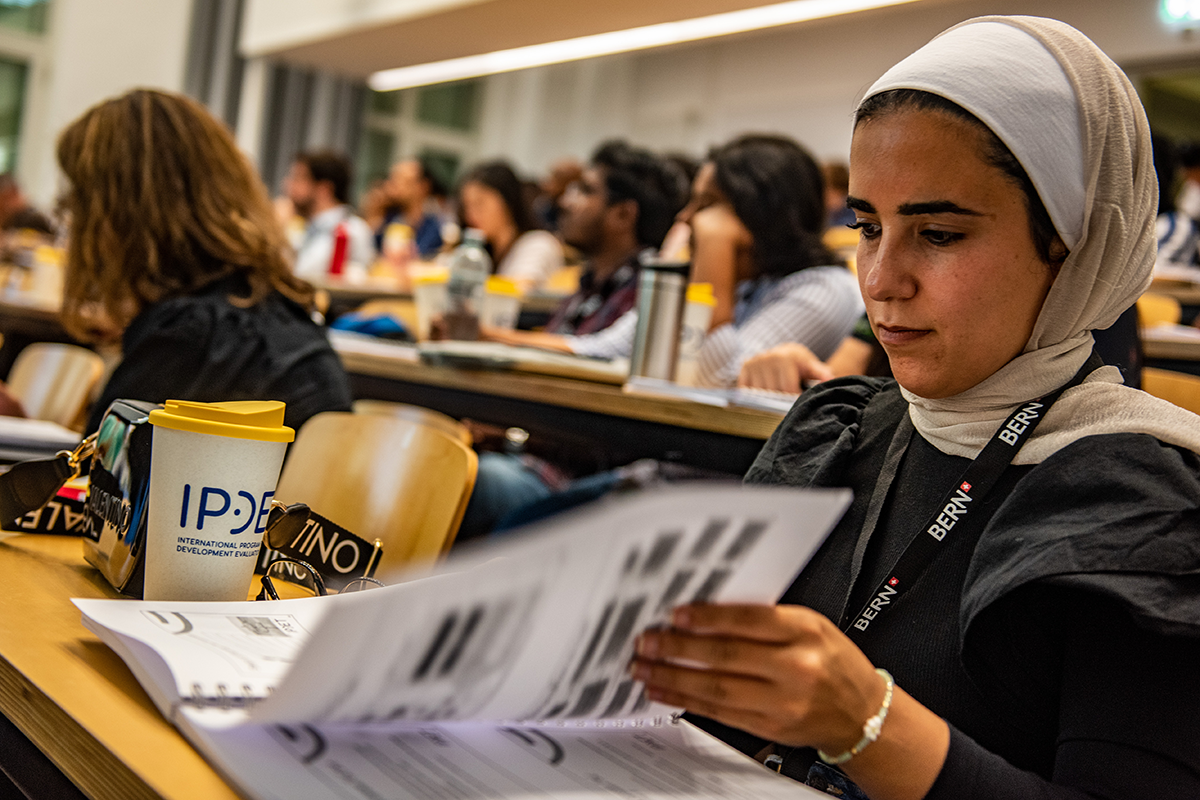
Hear More from Olga and Kenneth
What has been the impact of the IPDET experience on you?
-- Olga
How is your IPDET experience helping you change things within your organization?
-- Kenneth
How do you make use of the IPDET alumni community?
-- Olga
Have you benefited in other ways from your IPDET experience?
-- Kenneth
Story by Maria Fyodorova